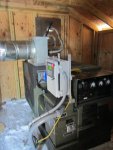- 2,102
- 32
- 38
- Location
- Delta Junction, Alaska
I wanted to be able to hook up to anything, anywhere, fast & easy. When you need it most, here, usually its the most uncomfortable times (-50F).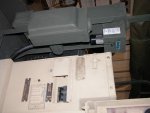
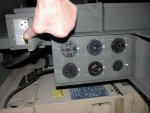
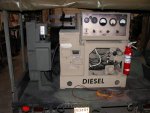
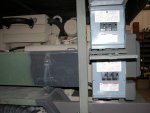
I have a pigtail going into the boxes with the plugs/breakers. If I need 120V, I have another cord with GFCI, 20A duplexs, that I plug into the 230V. to better balance the draw. If I need to plug into my house, I use a 50A cord, as shown earlier.




I have a pigtail going into the boxes with the plugs/breakers. If I need 120V, I have another cord with GFCI, 20A duplexs, that I plug into the 230V. to better balance the draw. If I need to plug into my house, I use a 50A cord, as shown earlier.



